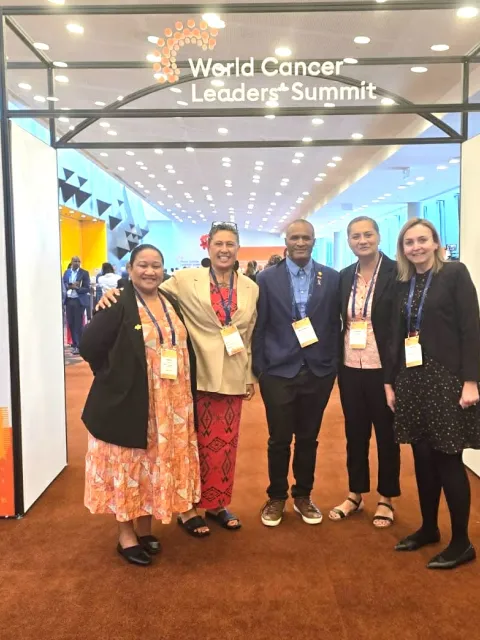Assisting countries to implement National Cancer Control Plans
A new on-line learning programme sees global cancer control experts assist eight countries, in collaboration with their Ministries of Health, in implementing their national cancer control plans.

The International Cancer Control Partnership (ICCP) is a group of over 20 organisations, co-founded by UICC, that have working together since 2012 to support national cancer control planning efforts.
Now on October 14th, ICCP has launched the ICCP ECHO Program, which aims to support the implementation of national cancer control plans. It uses the Project ECHO technology-enabled collaborative learning model to develop a virtual community of practice, where members learn through both instruction-based learning and group discourse.
The programme is convening eight country teams in the implementation stage of their national cancer control plan (NCCP): Cameroon, Eswatini, India, Kenya, Malawi, Nigeria, Rwanda and Tanzania.
The teams will benefit from the support of the cancer department at their Ministry of Health and from the knowledge of global cancer control experts. The telementoring will take place in a bi-directional learning environment through monthly ECHO sessions.
"National Cancer Control Plans are key to countries’ responses to cancer. But developing a plan is not enough if it is just left on the shelf – these plans need to be implemented to make a difference. Therefore, the launch of the first ICCP ECHO Program is an exciting and promising moment, where country teams working with the support of the ICCP partners can implement national cancer control plans that are adapted to the needs and resources of their respective countries."
– Sonali Johnson, Head of Knowledge, Advocacy and Policy, UICC, ICCP Steering Committee Member
Participants filled out a baseline survey to identify priorities for NCCP implementation in their countries. These priorities were later discussed by the country teams during focus group discussions led by the ICCP partners in preparation for the start of the programme.
Participants also received a detailed review of their national cancer control plan conducted using a questionnaire developed for a global analysis of NCCPs.
The curriculum of the programme is developed progressively based on topics that participants identify as key areas of technical need in cancer control plan implementation (e.g., scaling up evidence-based cancer prevention and control interventions, costing, prioritising activities).
"The Cameroon Country team is looking forward to exchanging best practices and sharing experiences with our fellow participants in the ICCP ECHO Program. For a strategic plan to have impact on the health care system of any nation, it needs to be well implemented. We are all at a different stage of implementing national cancer control plans in our countries and will undoubtedly benefit from the respective experiences we have had and challenges we face. The ICCP ECHO will equally help its participants to identify processes that are key to driving the plan forward."
– Sona Franklin, Ministry of Health, Cameroon.
Each session will include a case presentation by one of the participating countries, a didactic presentation by an expert on a technical topic and a group discussion. Programme outcomes will be measured through a pre-post survey method, which will also assist in tracking knowledge acquisition and responding to changing country needs over the course of the ICCP ECHO Program.
The next opportunity for countries to apply to join the ICCP ECHO Program is tentatively set to begin in March 2021.
Additional technical assistance
In addition to this programme, ICCP has developed other types of technical assistance support for national cancer control planning. Countries can now receive guidance on their National Cancer Control Plan (NCCP), including assistance with the development of NCCPs and implementation plans, reviewing, evaluating, providing feedback on drafts of national cancer control plans, assistance with updating expired or soon-to-expire NCCPs, expertise and/or connection to an expert on a specific area of cancer control.
Last update
Tuesday 08 June 2021
